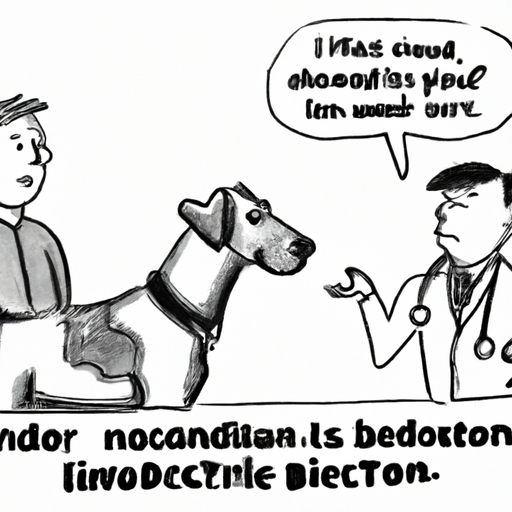“`markdown
What is IBD in Dogs?
Understanding IBD
Inflammatory Bowel Disease, or IBD, is a chronic condition that affects your dog’s gastrointestinal tract. It occurs when the lining of the stomach or intestines becomes inflamed, causing discomfort and disruption to normal digestion.
If you’ve noticed changes in your dog’s eating habits, or if they’ve been experiencing vomiting or diarrhea, it could be a sign of IBD. It’s a condition that requires long-term management, so understanding what it means for your pet is crucial.
Symptoms of IBD in Dogs
To spot potential IBD in your dog, watch out for the following signs:
- Chronic vomiting
- Diarrhea
- Weight loss
- Changes in appetite
- Blood in stool
- Flatulence
- Lethargy
These symptoms can come and go, and often increase in severity over time. It’s important to consult your vet if any of these symptoms persist.
Causes and Risk Factors
While the exact cause of IBD is unknown, there are several factors believed to contribute to its development. These include:
- Genetics: Certain breeds may be predisposed to IBD.
- Immune system issues: An abnormal immune response may cause inflammation.
- Environmental factors: Certain foods, parasites or bacteria may trigger IBD.
| Risk Factor | Explanation |
|---|---|
| Age | Older dogs are more susceptible |
| Breed | Breeds like Basenjis, Soft Coated Wheaten Terriers, and German Shepherds are more prone |
| Diet | Dogs with food allergies or intolerances may be at higher risk |
Treatment Options
Treatment for IBD in dogs often involves a combination of dietary changes and medication.
- Dietary Changes: Special diets can help manage IBD symptoms. These may include hypoallergenic diets, or diets high in fiber.
- Medication: Your vet may prescribe medication to reduce inflammation or control the immune response.
Managing IBD is a long-term commitment. But with patience, you and your vet can find a treatment plan that helps your dog lead a comfortable life.
Living with a Dog with IBD
Living with a dog with IBD can be challenging, but remember, you’re not alone. Here are some tips to help manage your dog’s condition:
- Regular vet visits: Regular check-ups can help monitor your dog’s condition and adjust treatment as necessary.
- Dietary consistency: Stick with the diet your vet recommends. Sudden changes can exacerbate symptoms.
- Emotional support: Remember, your dog may be feeling unwell. Provide lots of love and comfort to help them through.
FAQs
What is IBD in dogs?
IBD stands for Inflammatory Bowel Disease. It’s a chronic condition that affects the gastrointestinal tract of dogs, causing symptoms like vomiting and diarrhea.
What causes IBD in dogs?
The exact cause is unknown, but it’s believed to be a combination of genetic, immune system, and environmental factors.
How is IBD in dogs treated?
Treatment typically involves dietary changes and medication to manage symptoms.
Can dogs live a normal life with IBD?
Yes, with proper treatment and management, dogs with IBD can lead a happy, comfortable life.
“`



